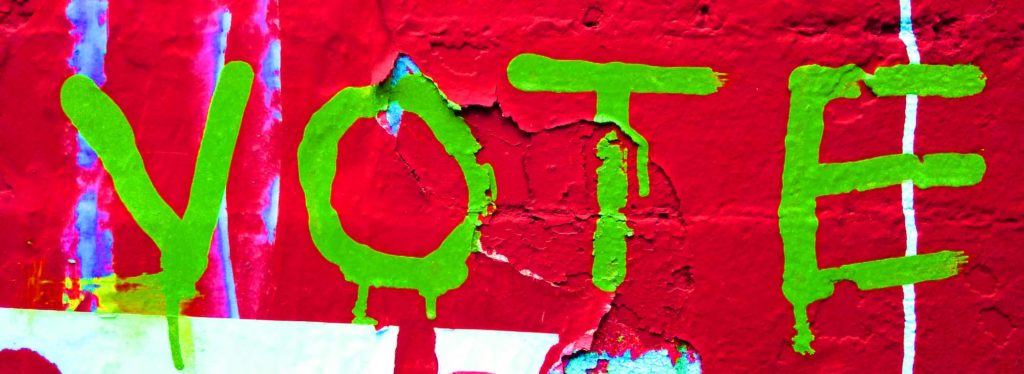For most of us, our interest in the rules and laws which govern our lives doesn’t end on the day of an election, it’s something we think about constantly. So why does our political system, in an era where there are alternatives, still force us into a situation where every few years we elect our political representatives, in the vain hope that they may support the will of their constituents, only to see them disappear to parliament and, almost to a person, become voting puppets for whatever political party they belong to.
Indeed, it’s so rare that an MP dissents from the party position that it makes headline news. Are we thus meant to believe that constituents in a rural community have exactly the same view as inner city dwellers on every single issue, just because the MPs they voted for belong to the same political party?
Equally, by voting a political party into government, the party takes it as a mandate to implement its full manifesto, when, if ever asked, very few people agree with everything in a party manifesto, including the party members. We simply vote for what we think is the best of the bunch, or least-worst in most cases.
Back in the days when a course of leeches was the cure for almost anything, probably including Covid 19 if it had been around then, this was pretty much the best we could do to satisfy the public demand for democracy. It simply wasn’t feasible for MP’s to knock on everyone’s door every time they had an important law to pass. But why do we continue to delude ourselves that it’s the case today and a system of voting invented before we had electricity is fit for purpose in the digital era?
We also love to sneer, for good reason, at single party states like China for the monopoly one party holds on the country. But, while our political system isn’t monopolised by one party, isn’t it a duopoly? Indeed, if the two main parties were businesses, the competition watchdog would be actively looking for ways to reduce their power.
The simple fact is that, for reasons which were important in a by-gone era, political parties were allowed to insert themselves between the people and the power and hijack our right to democracy. But why do we let them get away with it today? Why do we pretend that we live in a democracy when we live in a semi-democratic two-party state? Why don’t our elected leaders work towards a more democratic process? It all comes down to political will and can anyone recall a time when a politician sought to reduce their power and give it back to the voters?
A solution in part would be to ban political parties and have only independent MP’s, but as this would involve political parties banning themselves (turkeys voting for xmas), it’s never going to happen. Maybe the people will, en-masse, start rejecting political parties and vote for the independent candidates in elections. Again, given the marketing power and spend of the major parties, it’s not going to happen. Anyway, in both instances we’d still have independent MP’s pretending that they’re in touch with the people and know what they want.
So, what are we left with? Are we stuck with these secretive closed clubs, with their shadowy power brokers and ideological irrationalities standing between us and real democracy for ever? The doctor passing over a bottle of prime leeches and telling you to drop two on your abdomen before lunch would say ‘yes, there’s little that can practically be done about it.’ But then he would probably die at the ripe old age of twenty-nine from consumption. The truth is that there is now technology which would make our society truly democratic and allow people to vote directly on important issues via digital referenda.
Sounds like a fantasy? This system has been operating in Switzerland and other democracies for years. So why doesn’t it happen here? Quite simply because the political parties don’t want to let their grip on power be diminished by letting the great unwashed, who put them in power, dictate what they should do. They would prefer that we ignore the elephant in the room and all continue in our democratic delusion.
In answer to this, a new App, My Direct Democracy, has been launched which lets its members vote on every bill before the parliament and on answers to questions posed on the major social issues facing society. “It has no legal standing” Founder, Peter Widdows, said. “But we’ll make sure MP’s know what their own constituents are thinking and, if they choose to ignore them, we’ll make sure the media knows about it. If they repeatedly ignore their own constituents, good luck to them at the next election.”
When questioned about whether it would work, Widdows responded “if enough people download it, it’ll be impossible to ignore. Politics is a popularity contest after all.”
My Direct Democracy is available on both IOS and Android from the App store and Google Play Stores respectively.

